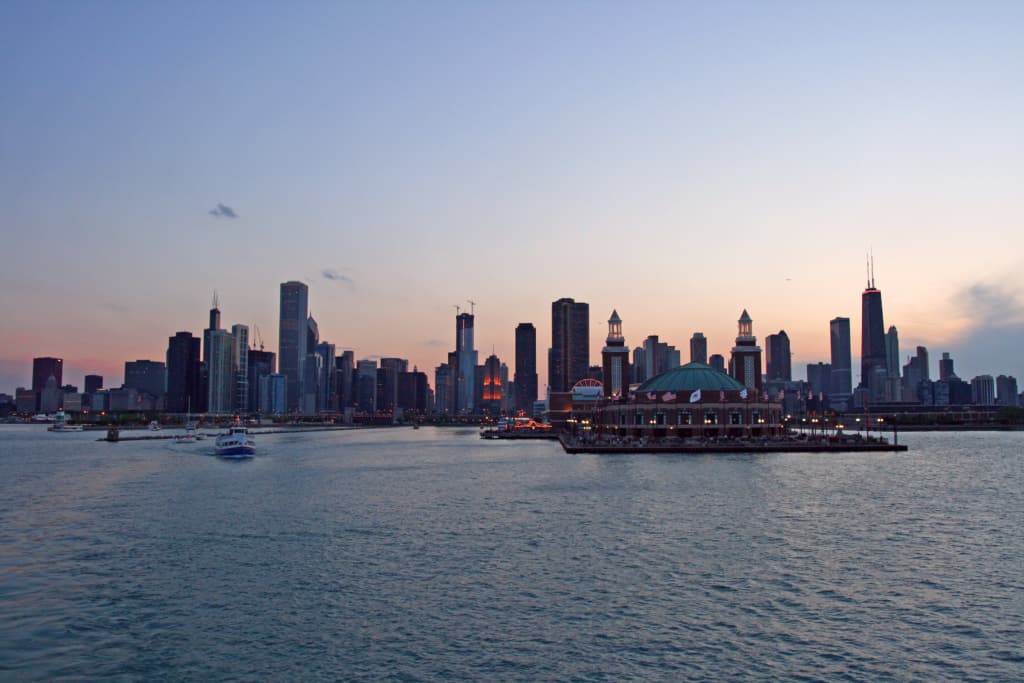
In 2000, I moved to Chicago. It was my first measurable time living outside of North Carolina. I stayed in the Midwest for nearly four and a half years and enjoyed every part of the experience.
One of the things I loved about Chicago was the vibrancy. There was always something going on. I loved to walk down bustling streets, to watch the activities of people doing interesting things and to know that I always had the option to do them.
This week, I returned to Chicago with my family, eager to relive my experiences, to find the next waves of cultural evolution, and to absorb new lessons from one of our great metropolises.
While the trip has been great, I have noticed several startling elements in Chicago that lead me to reflect on what has occurred since I left and what lessons North Carolina might learn from some of Chicago’s recent experiences.
1. Beware of the trends that lead to violence
Over the five-day, July 4th weekend, Chicago had more than 100 shootings, 15 of which were homicides. In 2016, there were more than 3,500 shootings in Chicago and more than 750 homicides. African Americans make up roughly one-third of the city but made up three-fourths of the 2016 homicides.
Much has been made of the increase in Chicago violence over the last few years (e.g., here and here), but no one seems to exactly know why. There are lots of theories: the ability of social media to exacerbate insults and spark violent communication; a shift from centralized gangs to decentralized gangs; high unemployment rates for young men; and increased access to guns.
I will let social scientists and time reflect on the causes. However, I can confirm that persistent violence affects the soul of a place. The weekend shootings were part of the storyline every day I was in town. It affected how I viewed my time there; I saw other tourists discussing it, and I overheard locals complaining about it, not to mention the thousands of people living in sections of the city that have most regularly experienced the increase in violence.
In North Carolina, we should take heed and observe what other areas are experiencing. While Chicago’s total volume of violence has increased, there are other American cities like Baltimore, St. Louis, and Detroit with similarly disturbing per capita violence numbers. We should watch how these communities address or fail to address problems related to violence and pay attention to the public policies that rise from them.
2. Unchecked, politics can destroy the ability to govern
Politicians are often faced with difficult and unpopular choices. In Chicago, and in Illinois more broadly, politicians have a history of letting these decisions interfere with governing. This interference has created a backlog of consequences that have begun affecting how the public sector functions.
Financially, the situation is grim. Illinois has the lowest credit rating of any state in the country–one step above junk bond. Just this week, the state passed its first budget in three years and has not paid its bills during that time. It is loaded with pension obligations that it may never be able to fully pay.
Chicago’s finances are just as tenuous. The Chicago Public School System recently had to take out a short-term loan to meet its fiscal year budget requirements. In 2015, the city’s credit rating joined Detroit as being the only other major metropolitan area listed as junk bond status by the credit rating agencies.
These poor financial conditions are not the result of any one action. They are the result of a series of lofty promises and under-commitments that pushed obligations and responsibilities down the road. The result is a financial burden that will likely take a generation to restructure and overcome. In the meantime, Chicago has one of the largest population losses in the country and is struggling to balance raising taxes with decreases in other public functions.
On many of these fronts, North Carolina and all of our cities are in much better shape. We have kept our obligations controlled and have regularly honored what we have made. On the other hand, many of the cracks in Illinois and Chicago have shallower counterparts in North Carolina. Deep political divides negatively affect our ability to govern productively and pass the buck on important decisions related to education, health and human services, Medicaid and infrastructure. And though we have come at it from a different angle, we have also shown a recent propensity for self-inflicted wounds.

3. Retail decline is real
I have been startled by the number of empty storefronts in Chicago, particularly in the central business districts. One of Chicago’s best characteristics has always been its walkability, which is enhanced by a variety of different real estate uses. The office, residential and food/beverage parts of the city seem to be vibrant, but there are fewer stores where people can buy goods.
Chicago is not alone in this trend. Much has been written about the death, or at least transformation, of retail. It is undeniable these changes are affecting the built landscape of urban environments like Chicago.
This translates to North Carolina as well, where we are seeing the revitalization of many downtown business districts. With fewer retail shops to anchor vibrancy, we must look to other ways to populate our streetscapes.

4. If you build it, they will come…and someone must maintain it
Chicago’s Millennium Park opened in 2003 and has evolved over the last 14 years. It is a magnificent public space and is now one of the top attractions for tourists and locals alike.
At varying levels, the State of North Carolina and different local communities are in the process of contemplating different public investments in community spaces. Chicago is a great example of how these spaces create a vibrancy that makes people want to be there; they create the markets that businesses want to be near; and they improve the holistic quality of life for those who touch them. Within fiscally responsible constraints, we should do everything that we can to build them in North Carolina.
On the other hand, we must be aware of the responsibility that comes with public infrastructure. Too often, public assets slip into disrepair. This is one area where Chicago tends to do pretty well. The city gets the importance of public places and invests in them, despite other challenges. North Carolina must do so as well.

I do not despair for Chicago. It is a city with a deep well of resources—both monetary and social—and will find its path to tackling problems and reestablishing itself. I head home feeling leery of how negative political and sociological trends can alter a place in a relatively short time. At the same time, I am proud of how vibrant North Carolina has become and hopeful that we will adequately face the challenges before us.
Weekly Insight


